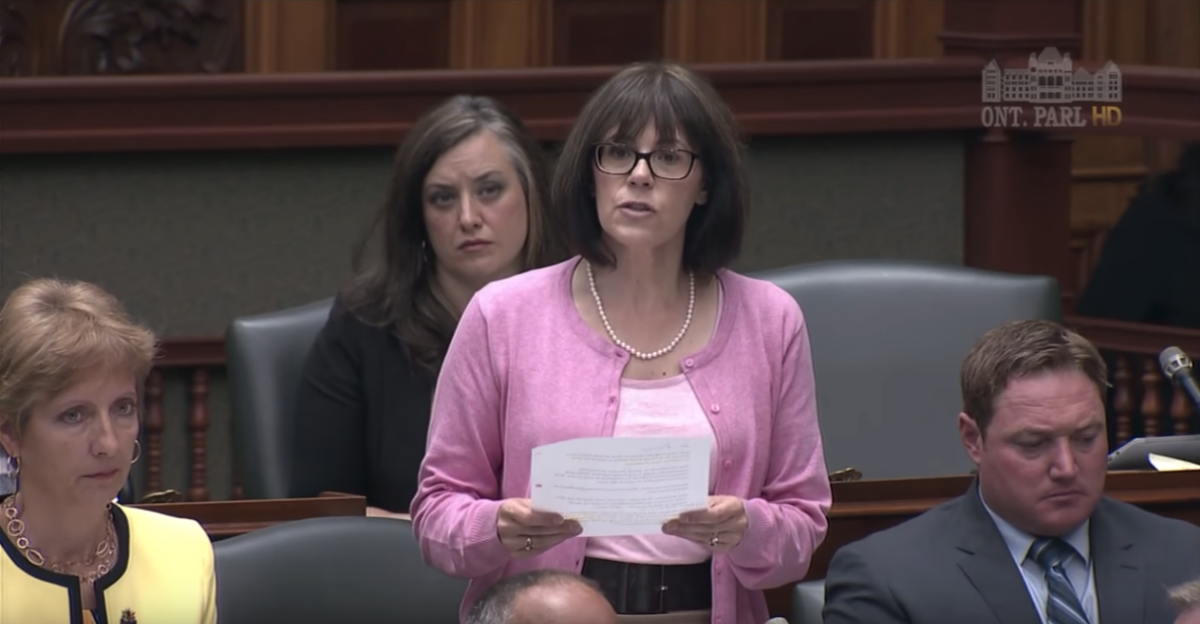The New Democrats are challenging Kathleen Wynne and her Liberal government over what they say is a lack of health-care funding.

During Tuesday’s question period at Queen’s Park, London-Fanshawe New Democrat MPP Teresa Armstrong said underfunding has left London hospitals overcrowded and ill-equipped to handle a deadly outbreak.
Earlier this week, the Middlesex-London Health Unit said there have been 132 confirmed cases of invasive group A streptococcus (iGAS) since the outbreak was announced in the London area in April 2016.
Armstrong says that has people in London worried.
“In the past 18 months, invasive streptococcus has tragically taken the lives of nine people and sent nearly 30 to the intensive care unit,” said Armstrong. “Local health officials say this outbreak is ‘very unusual’ and that leaves people who are in hospital worried and scared that this virus is not yet under control.”
While most group A streptococcus (GAS) infections see relatively mild illnesses, the health unit says more serious and potentially life-threatening infections can become invasive and get into muscles, blood, and other organs.
Armstrong says Wynne and her government need to do more.
- ‘I meant what I said’: Carney says he did not walk back Davos speech to Trump
- Alberta judges urge respect, independence after Danielle Smith said she wants to ‘direct’ them
- Canada’s population could hit 76 million by 2075 in high-growth scenario
- Ford distances himself from ICE vehicle order placed with Ontario-based company
“When an outbreak happens, our hospitals need to have the space and the resources to meet the demand. That’s true whether we’re talking about a bad flu season or a deadly virus like streptococcus,” said Armstrong.

Get breaking National news
“London’s hospitals have been pushed to operate far above their capacity, they’re overcrowded every day. Even at the best of times, people are being forced to wait in hallways and in the ER for the care they need.”
Half of the cases have been found to involve drug users and/or those with no stable housing, according to Dr. Gayane Hovhannisyan, associate medical officer of health at MLHU. The alert was issued after the health unit saw an increase in infections among people who have no connection to the outbreak among drug users and the under-housed.
“Invasive group A streptococcus is a type of group A streptococcus bacteria. Sometimes, this bacteria goes deep into tissue and blood and that’s how it becomes invasive. Some types of this infection are more likely to become invasive than others,” she said.
Of the more than 132 iGAS cases, 22 per cent required intensive care treatment, while 15 per cent had streptococcal toxic shock syndrome. In addition, 15 per cent of cases had necrotizing fasciitis — or “flesh-eating” disease.
The New Democrats have promised to fund hospitals and have committed to a moratorium on the firing of front-line hospital staff.











Comments